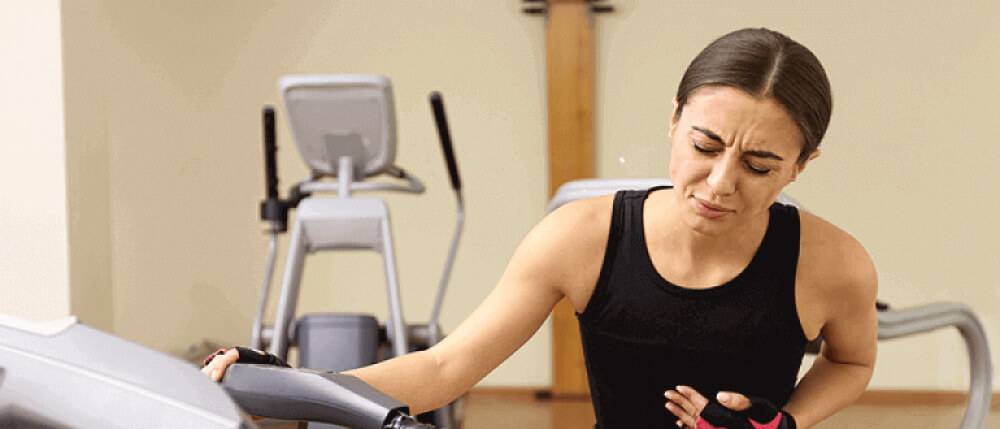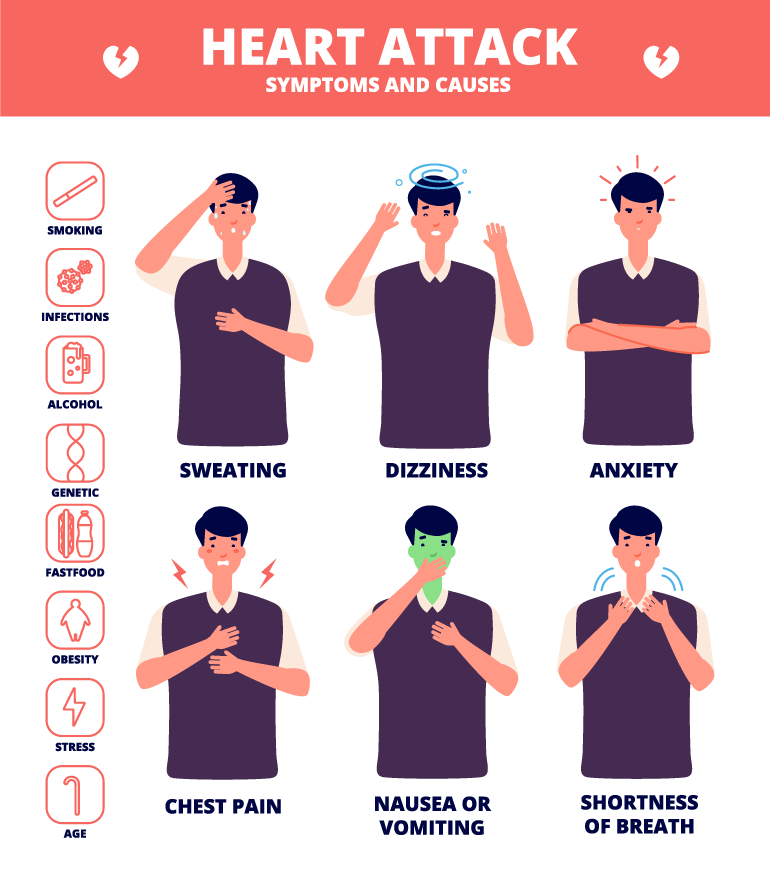Subscribe to get weekly insights
Always stay up to date with our newest articles sent direct to your inbox
Published on 15 Sep, 2022
Updated on 2 Mar, 2025
30102 Views
5 min Read

Written by Care Health Insurance
favorite1Like
At a time when a good physique is the new cool, young adults are hitting the gym more often than ever. In an effort to create a strong and bulky build, gym goers frequently perform strenuous exercises that might not suit their body’s needs and capacity.
More so, India’s young adults – whether men or women – are becoming prone to heart diseases, more than ever today. Compared to the West, Indians are contracting heart diseases at least 10 years before their counterparts in the West. One of the reasons behind India’s poor heart health is that we have comparatively smaller blood vessels than the Western population.
In the wake of rising cases of heart attack among young people and fitness freaks, we shed some light on the reasons behind this alarming health problem.
For many, gymming is synonymous with fitness and health. Yet, exercising can backfire and leave you more strained than revitalised. Look out for the below-mentioned reasons that are often overlooked signs of heart disease among gym goers:
Exercises involving intense workouts, especially running, cycling at 10mph or faster, swimming, and jumping rope fall under strenuous exercises. Researchers have found strong evidence that high-intensity exercises are one of the major reasons why people get a heart attack in the gym.
Dr. Reddy, a cardiologist at PHFI, points out that forceful exercises can also lead to sudden cardiac arrest by causing plaque rupture or triggering electrical disturbances in the heart.
An immediate rise in blood pressure is common while exercising. However, the problem is when the blood pressure does not return to normal once you finish exercising. The Center for Disease Control & Prevention suggests that it is normal for the systolic (the top number) blood pressure to shoot during exercise, but not beyond 200 mm Hg.
On the other hand, your diastolic blood pressure (the below number) should not change while exercising. If it does, you must consult a doctor to know if there are any heart risks involved.
Most gymgoers are not aware of their heart health status. They may not know they have clogged arteries until they suffer a sudden cardiac arrest. That’s one major factor behind major heart strokes– not knowing the risk of developing coronary artery disease before indulging in strenuous exercises.

Some critical reasons for heart attack at a young age are as follows:
The good news is, you can always get your heart’s health back on track with the following tips and habits:
While some people have higher stamina and strength, others may not be able to perform strenuous exercises. The problem with youngsters is that they usually overestimate their body’s strength and ability to work out. This results in heart and health issues from an early age.
The best way to test your endurance is by taking up these simple exercises:
Stair Test: If you can climb 2 flights of stairs without breathlessness or fatigue, you are fit.
Walk Test: If you can walk 500 meters at a stretch within 6 minutes, you are fit. However, if you cannot cover 200 meters in 6 minutes, you need to consult a doctor.
RPE Test: Do jumping jacks for 2 minutes and rate your exertion on a scale of 0-10. If it’s below 4, your heart health is poor and needs attention.
Most young adults are influenced, often negatively, to follow diet trends that do more harm than good. Even when healthy, young people can be suffering from significant vitamin and protein deficiencies. As a young adult, you need quality carbs like oats and beans, lean protein food like skinless white meat and white-fleshed fish, and heart-healthy fats like walnuts and ground flaxseeds.
Pushing yourself when you’re under the weather can aggravate health problems. Especially when struggling with a fever, diarrhoea, coughing up phlegm, or chest congestion. On the other hand, you can safely do a workout if your symptoms involve a stuffy nose, sneezing, or earache. This is called the “above neck rule”.
Instead of hitting the gym with an exhausted body, you can take up simple movements like walking, yoga, dancing, and other mild workouts. This will ensure activeness while giving you energy for the rest of the day.
According to Dr Vanit Arora, Senior Consultant, Cardiac Electrophysiologist, Apollo Hospital, young people skip checking on their hearts before hitting the gym. Whether lifting weights or working out on a treadmill, any exercise can prove fatal when youngsters are not aware of their heart’s strength beforehand.
The hs-CRP test is a recommended heart test that determines your risk of developing coronary artery disease or cardiovascular conditions. Other annual tests, including ECG, echo, blood test, and angiography, are important ones to detect any heart problems.
Walking is the best habit you can form over time. In fact, studies suggest that healthy habits followed during adulthood go a long way into your 40s and 50s. As a young individual, you must walk at least 30 minutes every day to ensure good cardiovascular fitness, strengthened bones, reduced body fat, and higher endurance.
Your heart is what we care about. Secure your heart’s health with the support of Care Health Insurance. We offer an exclusive ‘Heart Mediclaim’ that protects your heart against 16 critical heart diseases and ailments heart valve repair, aorta surgery, coronary artery bypass graft, and others. Complemented with an affordable premium, Heart Mediclaim comes with unique features like lifelong renewability, annual health check-ups, easy EMI options, and no-claim bonus. So, prepare a financial cushion to protect your heart with Health Insurance.
Also know more about Family health insurance plans
Disclaimer: The above information is for reference purposes only: Policy Assurance and Claims at the underwriter's discretion.
शुगर कंट्रोल कैसे करे? जानें, डायबिटीज में क्या खाना चाहिए Care Health Insurance in Health & Wellness
Thyroid : मामूली नहीं हैं महिलाओं में थायराइड होना, जानें इसके लक्षण और घरेलू उपचार Care Health Insurance in Diseases
हाई ब्लड प्रेशर को तुरंत कंट्रोल कैसे करें? देखें इसके उपाय Care Health Insurance in Diseases
प्लेटलेट्स की कमी के लक्षण, कारण और इलाज क्या है Care Health Insurance in Diseases
7 Types of Heart Diseases that Need Modern Treatment Care Health Insurance in Diseases
Experiencing Heart Palpitation? Know Its Causes, Symptoms, and Treatment Care Health Insurance in Diseases
Does Your Health Insurance Cover Open Heart Surgery Cost? Care Health Insurance in Heart